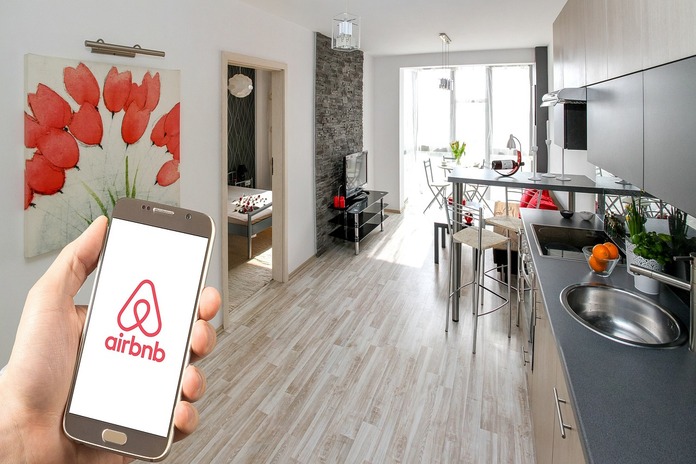Airbnb (NASDAQ:ABNB) has issued a disappointing forecast for its third-quarter revenue, citing weakening demand from U.S. customers amid growing economic uncertainty. The vacation rental giant’s outlook fell short of Wall Street expectations, leading to a sharp 12% drop in its share price after the announcement. This article examines Airbnb’s recent financial performance and the factors contributing to its softer revenue forecast for the upcoming quarter.
Weaker U.S. Demand and Economic Concerns
Since the beginning of the year, domestic travel in the United States has been under pressure as more Americans become cautious about travel spending. This shift in consumer behavior has been driven by rising concerns over economic stability, leading to a decline in demand for Airbnb’s services in its largest market.
For the second quarter, Airbnb reported a profit of $555 million, or 86 cents per share, down from $650 million, or 98 cents per share, a year earlier. The company’s revenue for the quarter ended June 30 was $2.75 billion, up 11% from the previous year. Despite this growth, the results did not meet the expectations set by investors, particularly in light of the company’s more cautious outlook for the third quarter.
Disappointing Q3 Revenue Forecast
Airbnb has projected third-quarter revenue to be between $3.67 billion and $3.73 billion, falling short of analysts’ estimate of $3.84 billion, according to LSEG data. The company also expects a moderation in the growth of nights booked during the third quarter, alongside shorter booking lead times globally.
Booking lead time is a crucial metric in the travel industry, representing the number of days between the reservation date and the actual arrival. A shorter booking window can signal increased uncertainty and caution among consumers, who may be making last-minute travel decisions due to economic concerns. Airbnb’s observation of shrinking booking lead times aligns with broader industry trends, as travel reservations provider Booking.com also reported a similar decline earlier this month.
Impact on Key Financial Metrics
Airbnb’s average daily rate, which represents the cost per night, increased by approximately 2% to $169.53 in the second quarter. The company anticipates modest ADR growth in the third quarter, but this may not be enough to offset the challenges posed by softer demand and shorter booking windows.
The company’s net income margin, which measures the profit made for every dollar of revenue generated, declined to 20% in the second quarter, down from 26% a year ago. This decrease reflects the pressures on profitability that Airbnb is facing as it navigates a more uncertain economic environment.
Despite these challenges, Airbnb did report some positive indicators. The total number of nights and experiences booked reached 125.1 million in the second quarter, up 9% from the previous year. Globally, the strongest growth was seen in Latin America and the Asia-Pacific region, where nights and experiences booked increased by 17% and 19%, respectively. The company also reported a gross bookings value of $21.2 billion, an 11% increase from the same period last year.
Outlook and Strategic Considerations
As Airbnb looks ahead to the third quarter, it will need to carefully manage its response to the evolving economic landscape. The company’s ability to adapt to changing consumer behavior, particularly in its core U.S. market, will be critical to sustaining growth. Expanding its presence in international markets, where demand remains robust, could help mitigate the impact of weaker U.S. performance.
Investors will be closely watching how Airbnb addresses these challenges, particularly in light of its commitment to maintaining profitability while navigating economic headwinds. The company’s next earnings report will provide further insights into its strategies and how it plans to balance growth with the realities of a softer demand environment.
Conclusion
Airbnb’s lower-than-expected Q3 revenue forecast highlights the challenges the company faces amid weakening U.S. demand and economic uncertainty. As the travel industry continues to evolve, Airbnb will need to adapt its strategies to maintain its competitive edge and meet investor expectations. With shares already down 12% following the announcement, the pressure is on for Airbnb to deliver a stronger performance in the coming quarters.
Featured Image: Pixabay From Peggy









